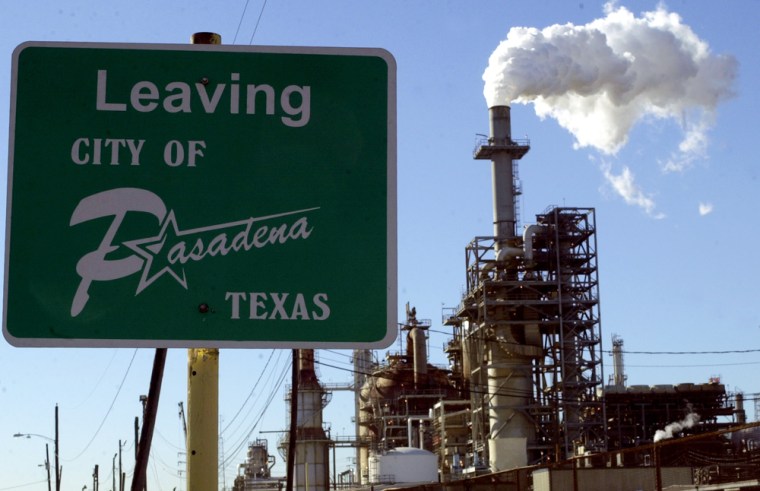The FBI has warned Texas oil refineries that terrorists may be targeting them, but a bureau spokesman said Thursday that it has no specific or corroborated details concerning any potential threats.
One official told Reuters that the advisory, based on intelligence, went to the industry and law enforcement officials in Texas “out of an abundance of caution.”
The official, who spoke on condition of anonymity, said the FBI in the past year processed 7,000 threats, and added, “These communications go out on a daily basis.”
There was no indication that the government planned to raise its terror threat assessment level as a result of the intelligence. The level is currently at "yellow" — or elevated — risk of terror attack.
The vast petrochemical refinery complex in the Houston area has long been identified as an attractive terrorist target. Roughly 40 percent of the nation’s gasoline is produced by gulf coast refiners, according to the U.S. Dept. of Energy
“This is the biggest — by far — concentration of refineries and petrochemical refiners in the country, so (an attack) would have a broader impact on the overall market rather than just a localized impact,” Marshall Adkins, an energy analyst with Raymond James in Houston, told MSNBC.com on Thursday.
U.S. refiners are already stretched. As gasoline supplies have fallen to historically low levels, many U.S. refiners are already operating at maximum capacity. While any loss of refining capacity could be partially filled with increased gasoline imports, it would put further pressure on prices at the pump — which are already at record highs.
